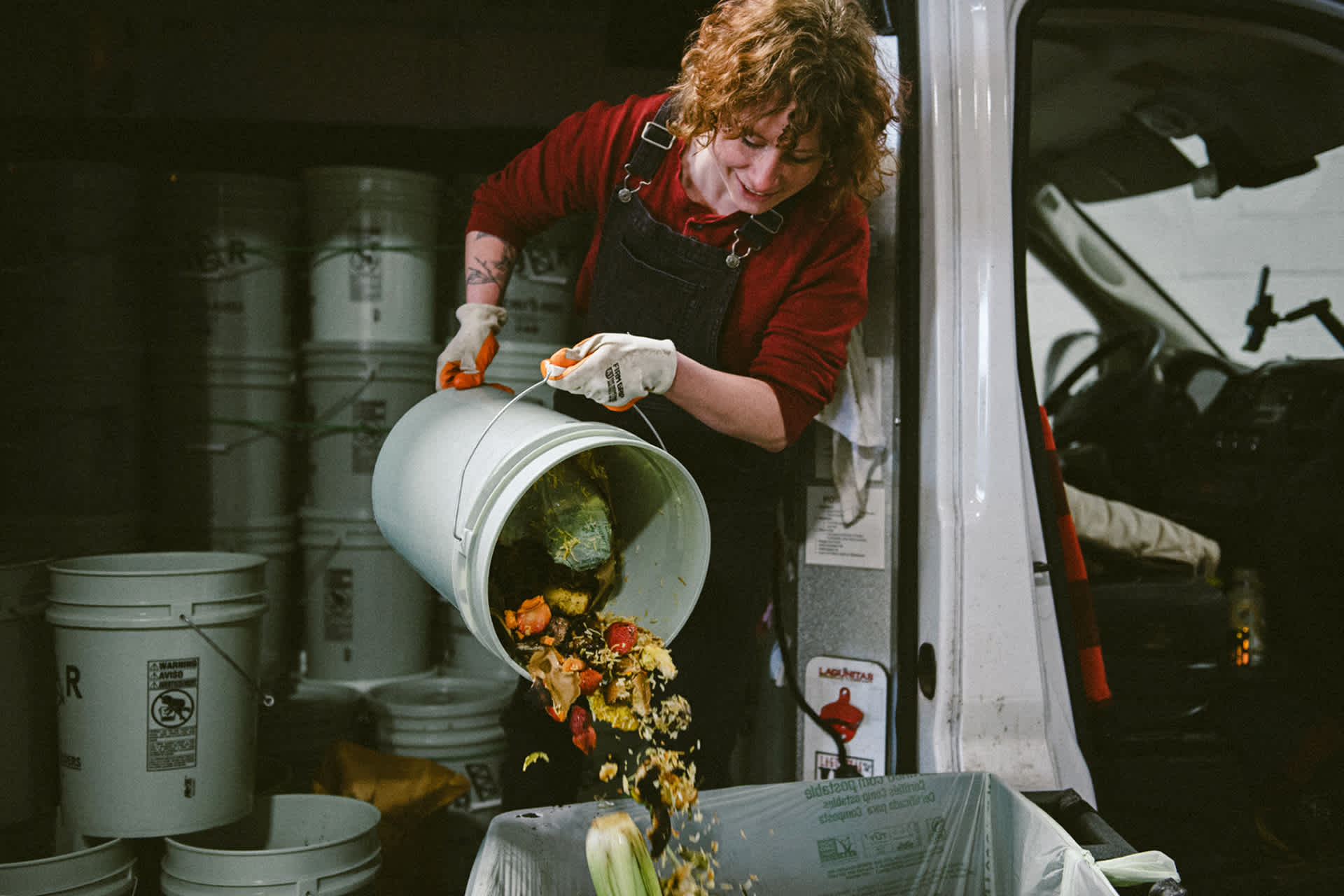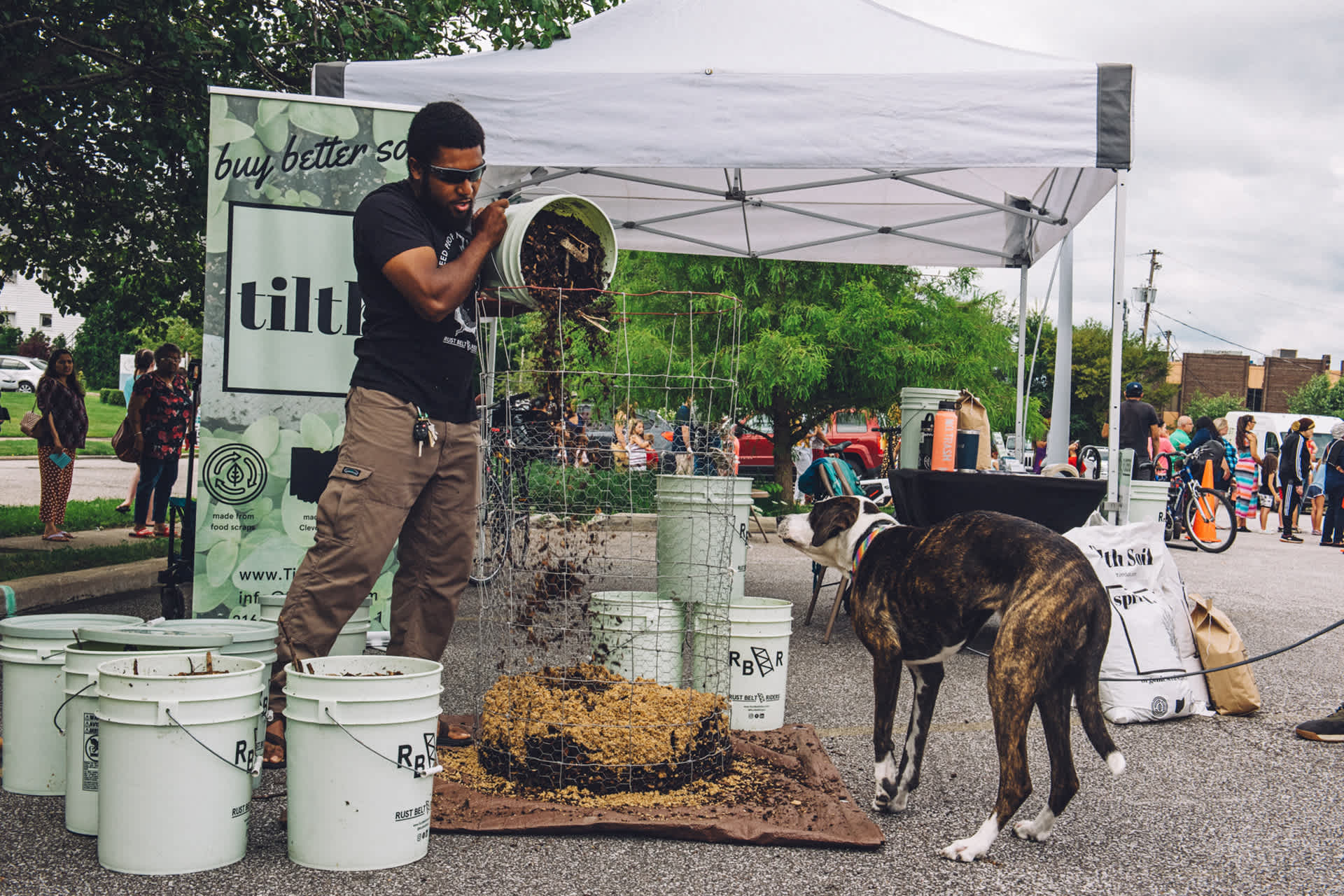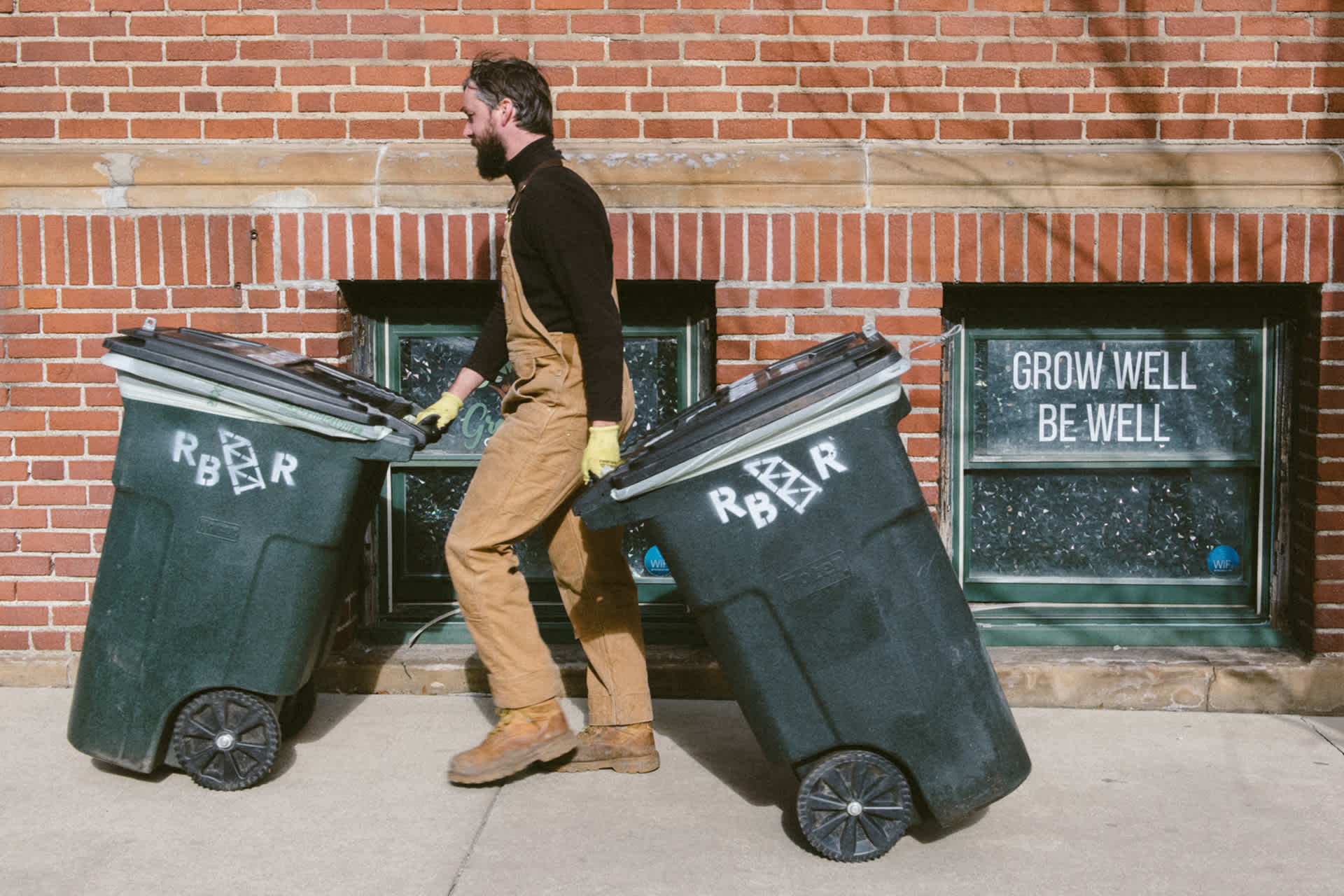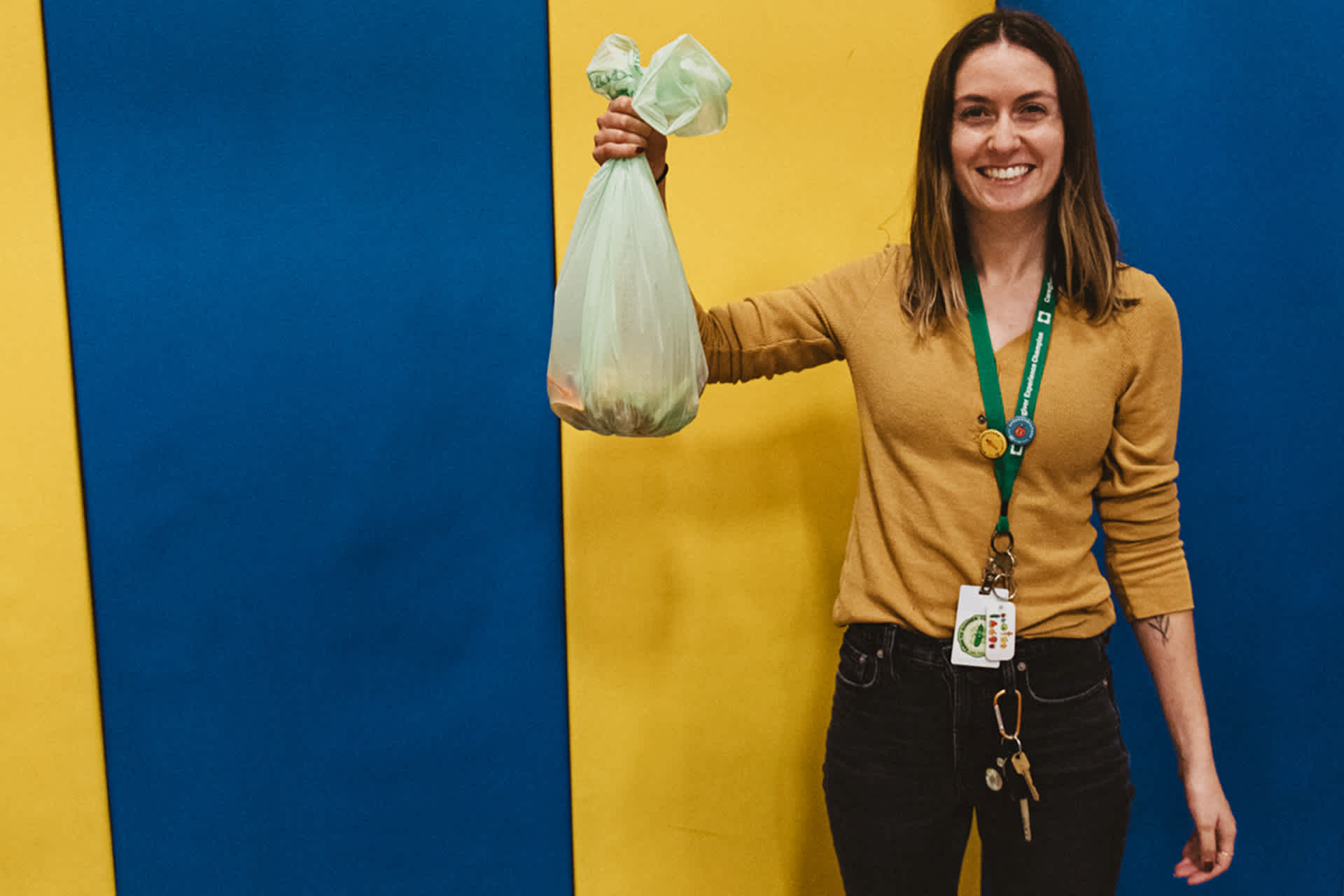Recycling Food

Robert Kurtz finds himself working right in the middle of a composting revolution. Kurtz is a commercial solutions manager at Rust Belt Riders. The composting company is based in Cleveland, Ohio. Its goal is to fight climate change by recycling as much food waste as possible.
“If we’re going to meet the climate goals that have been set out by our leaders and scientists, we’re going to have to tackle food waste,” Kurtz told Your Hot Job. “It’s a huge part of the problem.”
Composting 101
Wasted food winds up in landfills. As it breaks down, it creates a gas called methane. Methane traps heat in the atmosphere. And that fuels climate change.

The United States Environmental Protection Agency says the average family in the U.S. spends $1,500 per year on food that doesn’t get eaten. Businesses waste food too. That’s where Kurtz’s job comes in.
Every day, Kurtz contacts grocery stores, restaurants, and other food-service businesses. He educates them about the harmful effects of food waste. Then he asks if they’re willing to change the way they dispose of their excess food.

So far, Rust Belt Riders has persuaded 300 companies and 2,800 households to do something differently with their food waste. The company’s seven trucks and 30 employees pick up their clients’ extra food. Then they compost it, turning it into soil.
Compost soil is much more than just dirt. It’s made up of five ingredients that combine to help plants thrive. That’s why Kurtz and his colleagues at Rust Belt Riders offer a second service: They sell the composted, nutrient-rich soil to people and businesses that need it.
Student Impact
In addition to partnering with households and businesses, Rust Belt Riders has teamed up with local schools. At Dentzler Elementary, in nearby Parma, Ohio, Rust Belt Riders helps the kitchen staff compost its food scraps. The 500 students place their food waste into bins during lunch periods. The bins are then collected by Rust Belt Riders.
Emily Cass is a farm-to-school coordinator at Dentzler. “This program has created a space for all students to become environmental stewards in their own cafeteria when they might not otherwise have the opportunity,” Cass says.


